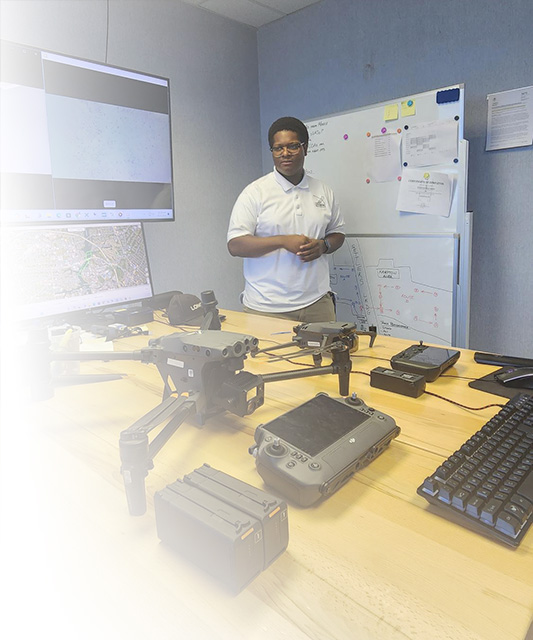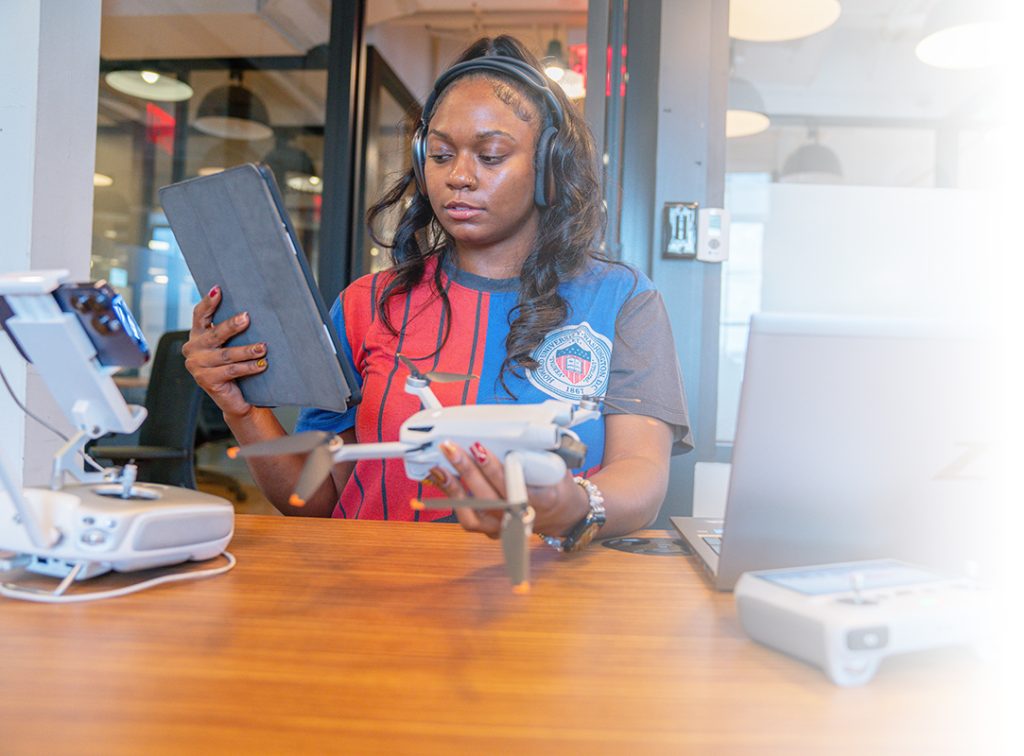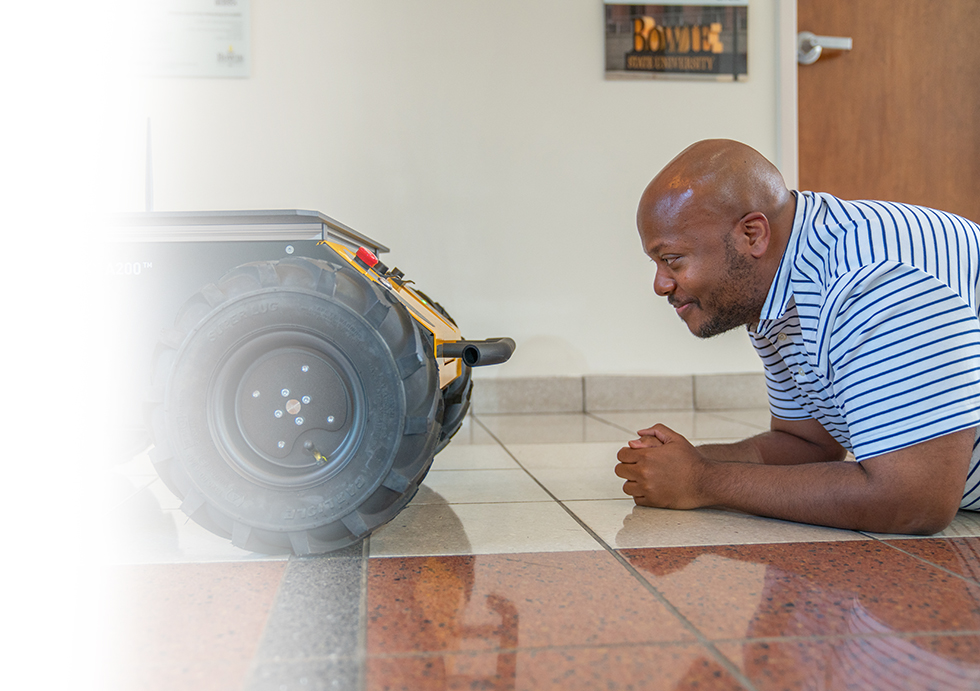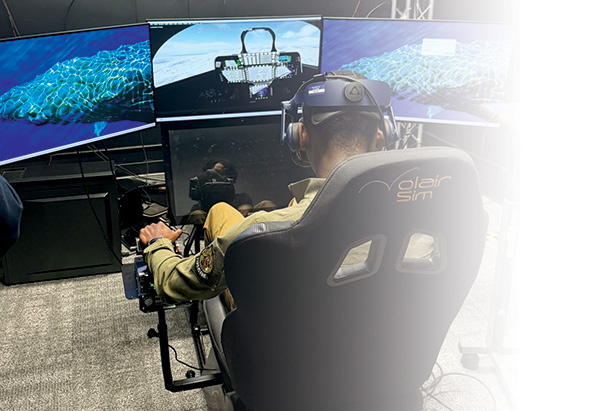RESEARCH


Our Vision
Our vision is to establish a globally recognized hub of excellence in autonomous systems research, where interdisciplinary collaboration catalyzes breakthroughs in technology, contributes to societal well-being, and shapes the future of autonomous applications.
‘Tactical Autonomy’ is defined as autonomous technology-based systems acting with delegated and bounded authority of humans in support of a strategic vision.
Our focus is on integrating applied research and development for new and existing DoD capabilities and producing a larger workforce in tactical autonomy for the US Department of Defense (DoD).

Our Mission
The mission of the Research Institute For Tactical Autonomy (RITA) is to develop partnerships between academia, government, and industry to solve real-world tactical autonomy challenges and problems that are critical to our national security through systematic research and development.
We aim to:
-
- Pioneer transformative research and innovations in autonomy that bridge theoretical exploration with practical applications, thereby driving progress in technology, security, and sustainable development;
- Establish essential research and development capabilities for the Department of defense to deliver operationally relevant autonomy by catalyzing community growth involving AI and autonomy research organizations;
- Accelerate RITA research and development by rapidly transferring its research to seed a unique science, research, and development ecosystem of small and large businesses, academia, and the Department of Defense;
- Transform AI and Autonomy practice throughout the government by creating innovative techniques, technologies, models, and tools that address critical challenges to meet mission outcomes and
- Grow the available pool of scientists and engineers to support the Defense Department and establish a source of organic technical and operational excellence.

Our Objective
The objective of the Tactical Autonomy UARC is to develop and demonstrate autonomous technologies that will enable various (AF)Air Force/(USSF)Space Force and Department of Defense (DOD) mission sets, with minimal supervision from human operators in environments that are complex and unpredictable with applications in Air, Space, Cyberspace, Ground and Sea.
Some areas of particular interest with respect to tactical autonomy and autonomous systems are:
-
- Enhance multi-domain situational awareness
- Reduce cognitive workload
- Enable force protection
- Support cyber defense
- Augment logistics
- Automate maneuverability and mobility

Trust in Mission Autonomy
Investigate and develop theoretical and practical techniques and technologies related to trust in mission autonomy to enable trusted and shared understanding in autonomous systems for complex, contested missions on the Multi-Domain Battlefield (MDB) at scale
Collaboration Between Platforms
Explore and develop theoretical and practical techniques and technologies related to collaboration between family of systems/platforms including human-machine collaborations, machine-machine collaborations by addressing challenges including interoperability, reliability, composability, complexity, and adaptability for Multi-Domain Battlefield MDB
Human Machine Teaming
Design, develop and implement theoretical and practical techniques and technologies related to Human-Machine teaming for enhanced maneuvering on the battlefield and trust, understanding, shared perception, joint reasoning, and adaptation to complex and contested MDB operating environments

Publications
![]()
Liu, J., Lu, Q., Boukari, H., & Boukari, F. (2024). Foundations, 4(4), 673-689.
Presentations
Caleb Cooper, Raven Lee, Manliang Feng and Jinghe Mao (April 2025). Abstract presented at the 2025 Emerging Researchers National (ERN) Conference in STEM, Atlanta, GA.
![]() EEG Epoch Classification Using Fourier Transform and LLM Transformer: A Theoretical Approach.
EEG Epoch Classification Using Fourier Transform and LLM Transformer: A Theoretical Approach.
Raven Lee, Caleb Cooper, Manliang Feng and Jinghe Mao (April 2025). Abstract presented at the 2025 Emerging Researchers National (ERN) Conference in STEM, Atlanta, GA.


1328 Florida Ave NW, Washington, DC 20009
